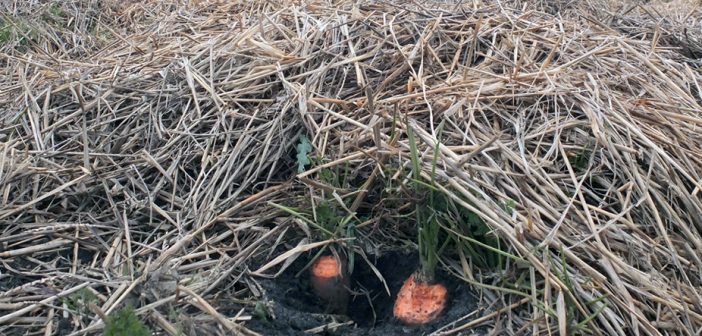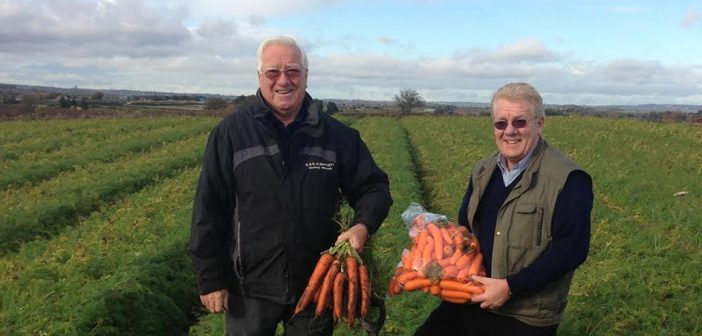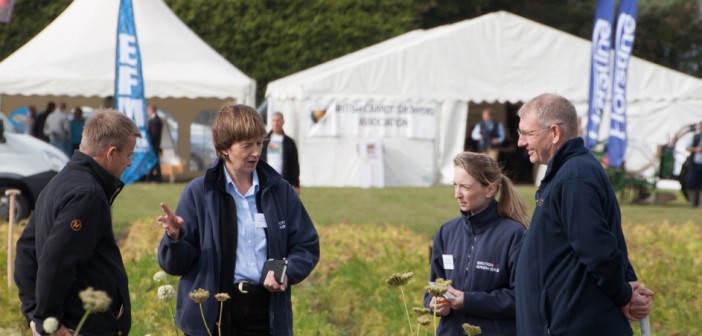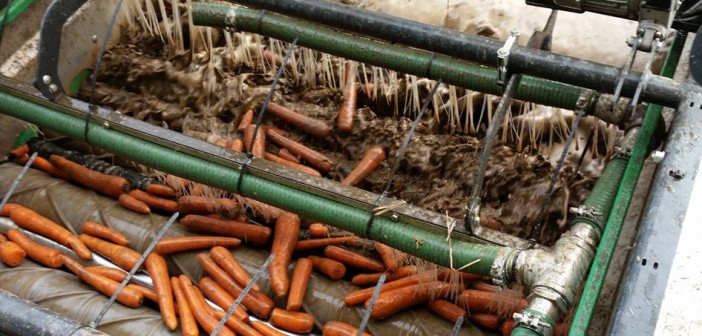More than 550 people from around the world applied to attend Bejo’s Carrot Symposium in September 2017. In fact, so many people were interested in the event which had the theme of Taste, Health & Innovation that we had to split the event into two groups, with delegates from Eastern Europe and Asia attending on the first day, and those from the rest of the world (principally Western Europe, the Americas and Australasia) taking part on the second day.
The varied agenda on both days covered a range of topics, including global and regional supply and demand, the development of new marketing concepts, breeding and seed technology, agronomy and disease issues and even health benefits. Speakers from across the globe also provided an overview of carrot production in different regions, focusing on Israel, the United States of America, and Japan.
As you would expect, networking was also a key part of the day and the breaks were packed with people catching up with old acquaintances, making new contacts and discussing the presentations in more depth. Activities also spilled over the rest of Bejo’s annual Open Days, with carrot harvesting demonstrations and a carrot taste trial also being carried out on the Demo Fields, alongside demonstrations of the latest carrot varieties from our extensive global portfolio.
IMPORTANT VEGETABLE GLOBALLY
Carrots are one of the most important vegetable crops globally, with China producing the largest area (130,000 ha), followed by the United States (78,000 ha), Russia (25,000 ha) and Brazil (22,250 ha). As you would expect, with so many different types and varieties available, carrots are sold in a variety of different formats around the world. However, despite the diversity, Nantes types are the most popular representing 40% of total global production. Other types such as Imperator, Flakkee, Berlicum, Chantenay and Kuroda are particularly popular in different regions (such as Kuroda in Japan) or for different uses (such as Imperator and Berlicum types for processing.
Another reason for the diversity of carrot types and production methods is that they are almost unique in being a vegetable that can be used for every part of a meal, something that was demonstrated during the lunch break when carrot soup, carrot slaw and salad, and carrot cake were all available. With carrots also forming the basis of many juice drinks and or smoothies, they really are the most versatile food available.
Globally a third of all carrot production is exported, while for countries like the Netherlands, Israel and Denmark, up to half their total crop is sold abroad. Maintaining such markets require attention to detail at all stages of the growing and supply chain, beginning with seed quality and sowing the crop. “We don’t sell carrots, we sell reliability,” stressed Israeli Crop Consultant Amos Yeger, adding that most of the country’s exports are sold to Eastern Europe, and Russia in particular.
BREEDING PROGRAM
There is increasing interest in Imperator types in different regions around the world, but Canada and the United States of America are still the main market for this type of carrot. To cater for this market Bejo is working on a dedicated Imperator breeding program, alongside its other carrot breeding, which is being led by US-based breeder carrot breeder Rob Maxwell. “We have got the shape and the eating quality, but I want to improve disease resistance, especially given the growth in organic production that we are seeing,” he said. The program has led to a number of new varieties, with a number of new varieties, including four ‘cut and peel’ types due to be released commercially over the next two years.

Q&A’s speakers

Audience view during the symposium

Carrots in Japan

Networking during the symposium
CAROTENOIDS STIMULATE THE IMMUNE SYSTEM AND CAN PROTECT THE BODY FROM THE EFFECTS OF SUNLIGHT AND CARDIOVASCULAR DISEASE
While breeders like Rob and Bejo’s Carrot Breeding Manager Wim Zwaan are busy selecting the healthiest and best new varieties, it falls to experts in the Seed Pathology and Seed Technology departments of Bejo to ensure that the seed of these varieties which is supplied to growers around the world is both healthy, and of the highest quality, including any treatments which the grower may specify. Bejo’s Seed Pathology Research Lead, Bert Compaan, explained that a wide range of different tests are performed on every batch of seed from around the world before anything is sold. Bejo’s seed laboratories offer a range of treatments, including disinfection, coating and priming. The latest innovation is B-Mox seed treatment, a type of enhanced priming which improves germination, establishment, and ultimately crop quality, and carrots are one of the first crops in Bejo’s portfolio to benefit from the technology. “B-Mox goes further than basic priming,” explained Bert. “B-Mox is a form of enhanced priming in combination with an innovative seed coating which gives better uniformity and an improved pack out to the grown crop.”
In order for breeders and seed scientists to keep ahead of an ever-developing disease threat, it is important that plant pathologists share their latest findings. It was therefore extremely interesting to hear Dr Adrian Fox of Fera Science Ltd in the United Kingdom discussing the latest work on carrot viruses which his team has undertaken. He explained that until 2012 there had only been a number of limited studies in Europe, with most of the focus on the Carrot Motley Dwarf complex of viruses and Carrot Yellow Leaf virus.
More recently attention has turned to identifying the causes of internal browning of carrot roots which is caused by viruses and can lead to significant rejections of fresh and processed products. At the same time Carrot Necrotic Dieback Virus (which has been known as Parsnip Yellow Fleck Virus until very recently) has also become more economically important for growers. With some plants having multiple virus infections, “Trying to separate which viruses lead to which symptoms can be difficult,” Dr Fox stressed, pointing out that there is lots more work for pathologists to do in order to fully understand these complex diseases.
HEALTH REASONS
There are sound health reasons for including carrots in the diet, and Dutch Doctor and Nutritionist Dr Richard De Leth explained several of them. For example, carotenoids stimulate the immune system and can protect the body from the effects of sunlight and cardiovascular disease. As part of a high fibre diet carrots can also help to reduce the risk of diseases including type-2 diabetes, colon cancer and stroke.
SUPPLY CHAIN
To help promote consumption Bejo works closely with all parts of the supply chain explained Marketing & Communication Advisor Danielle Bruin. “We work with partners on various projects in the chain and our sales staff and breeders are in close contact with each other. We prefer to develop and introduce new products and concepts with our customers.” Some of these recent introductions, which are becoming more popular around the world in different markets, include coloured and snacking carrots, as well as a number of varieties suitable for Bejo’s Cool Carrot Candy concept. These are varieties such as Mokum, White Satin and Ibiza, which have their own consistent and characteristic sweet and aromatic flavour with a crunchy bite and eye-catching appearance.
Picture Credits: Bejo Zaden BV.
Read the original article here.








